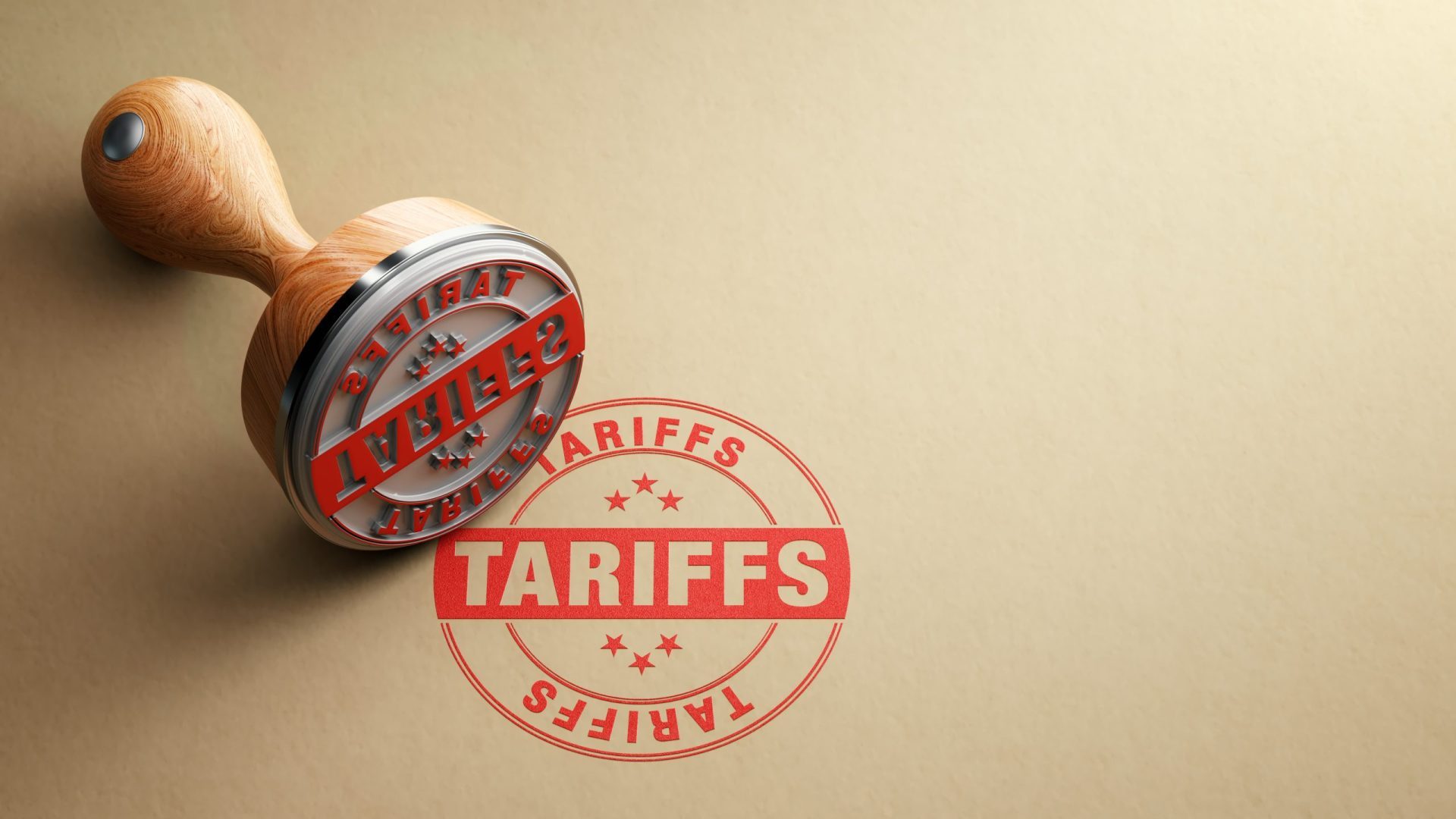
You can’t scroll through your phone without seeing the word tariffs. It appears in every other headline. Everyone from TV pundits to social media stars are duking it out over whether they’re good for the country and for consumers’ wallets. At this point, you’re sort of embarrassed to admit that you don’t know what a tariff is, how it works or who it’s going to really hit.
Find Out: I Asked ChatGPT What the Point of Trump’s Tariffs Are: Here’s What It Said
Read Next: 6 Big Shakeups Coming to Social Security in 2025
Instead of asking your one know-it-all friend, who will give you an unnecessarily complex explanation, there’s another route you can take: ChatGPT. While you don’t want to use ChatGPT as the end-all, be-all of your investigation, it can provide a baseline of information that will help guide you in deeper research.
To get a foundation into tariffs, your friendly neighborhood GOBankingRates writer (that would be me) asked ChatGPT to explain tariffs to me in very rudimentary terms — along with who should expect to be impacted the most.
A Definition in a Nutshell
ChatGPT’s basic definition of a tariff is very simple, which is exactly what I wanted: “A tariff is a kind of tax a government puts on products that come from other countries. It makes those foreign products more expensive so that people might buy stuff from their own country instead.”
Just to double-check this information before moving on, I visited the Tax Foundation website. Its definition aligns with what ChatGPT gave me: “Tariffs are taxes imposed by one country on goods imported from another country.”
The Tax Foundation website concurred with ChatGPT’s definition but offered greater specifics about the function of tariffs in trade: “Tariffs are trade barriers that raise prices, reduce available quantities of goods and services for US businesses and consumers, and create an economic burden on foreign exporters.”
Learn More: 5 Ways Trump’s ‘Big, Beautiful Bill’ Could Impact Your Wallet
Tariffs in Action
To give me an idea of how tariffs work in practice, ChatGPT gave me a real-world example — one that feels like it could come to a news broadcast near you sooner than you’d think. So, the U.S. imports steel from China, let’s say for $100 per ton. Without tariffs, U.S. businesses buy Chinese steel at that set price. Pretty easy, right?
Now, here’s a wrinkle in that situation (or should we say, a dent in the steel): The U.S. government puts a 25% tariff on that Chinese steel. At $100 plus a $25 tariff, that same steel now costs $125 per ton. If the same American businesses balk at the new expense, they might go to U.S.-made steel that costs $110 — because it’s now cheaper than imported steel.
Why Are Tariffs Imposed?
Ostensibly, tariffs are imposed to protect local businesses. As ChatGPT put it, “tariffs make imported goods more expensive, so local products seem cheaper in comparison.” It gives me another real-world scenario: “If cheap clothes from another country flood the market, local clothing companies might go out of business. A tariff helps them compete.”
Needless to say, if tariffs can help local businesses keep their doors open, that’s good news for employees. And when I asked ChatGPT why tariffs are imposed, it did mention that, when local companies are protected, they might be more likely to keep or hire more workers.
ChatGPT offered another scenario, which is that tariffs can be implemented as a means to influence, or even outright punish, other governments. It returned to the theme of tensions between the U.S. and China to offer another example. “The U.S. imposed tariffs on Chinese goods during trade tensions to pressure China on trade practices,” it wrote.
What’s the Controversy?
Even if you haven’t fully understood what tariffs are, you’re still likely aware that they can be controversial. Some pundits tout their ability to make American businesses more competitive, while others say that they’re only passing higher costs of popular goods onto consumers.
ChatGPT shared that tariffs also have the potential to limit the choice that everyday shoppers enjoy. “If tariffs make foreign products too expensive, stores might stop selling them,” it wrote. “So you have fewer brands or types of products to choose from.”
Another concern involves trade wars. According to ChatGPT, sometimes countries respond to tariffs with retaliatory tariffs of their own, which can make a wider range of products more expensive for all consumers while putting the hurt to businesses that rely on overseas sales.
Who Gets Impacted the Most?
Tariffs impact a broad swath of people and organizations, some more positively than others. Of course, domestic producers face less competition from cheaper imports, while consumers find their options limited and more expensive.
Importers and retailers also take it on the chin, according to ChatGPT, since they have to pay more for goods or even switch suppliers. There’s also the possibility that they can lose out on business if customers don’t want to pay higher prices. With their products becoming more expensive, exporters could potentially lose sales because their products become too expensive — however, other countries have the option to retaliate with their own tariffs.
To explain, ChatGPT offered the following example: “After U.S. tariffs on Chinese goods, China imposed tariffs on U.S. soybeans — hurting U.S. farmers.”
There isn’t really one type of person who will be hit hardest by tariffs — and some of the impact depends on what other countries do.
More From GOBankingRates
- 6 Costco Products That Have the Most Customer Complaints
- 5 Ways Trump Signing the GENIUS Act Could Impact Retirees
- 8 Common Mistakes Retirees Make With Their Social Security Checks
- 10 Genius Things Warren Buffett Says To Do With Your Money
This article originally appeared on GOBankingRates.com: I Asked ChatGPT About Tariffs — And Here’s Who It Said Is Impacted Most







